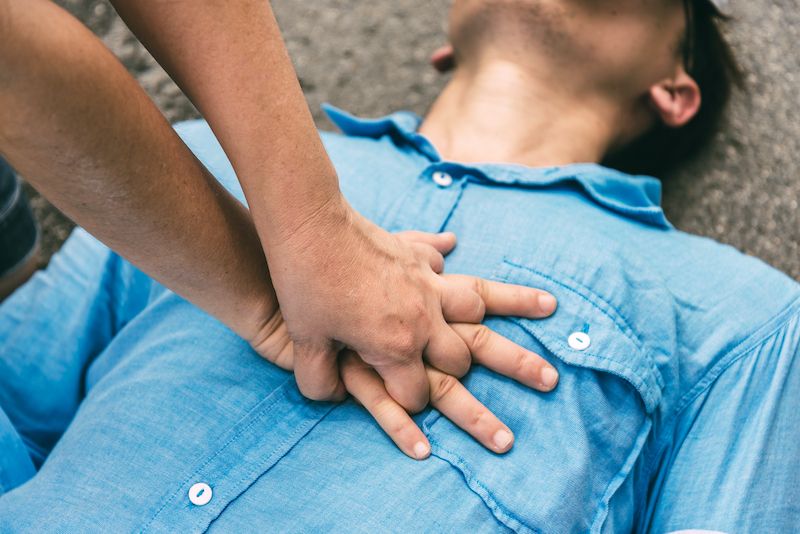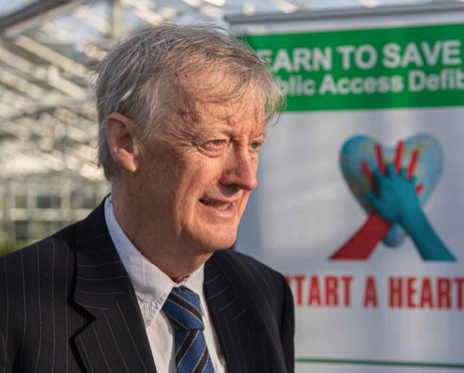


80% of cardiac arrests happen out of hospital and every minute without CPR reduces survival rates by 10%, according to ambulance services - with events in Guernsey next week aiming to improve the local statistics.
Bystander CPR and defibrillator training can save a life - as evidenced by John Greenfield who suffered a cardiac arrest and was ultimately saved by the "quick actions" of his friends who knew what to do.
Now supporting the Guernsey Cardiac Action Group, he is campaigning for more people to learn the skills that saved his life as part of 'Restart a Heart' day on Wednesday 16 October.
To mark the annual event, CAG are offering free CPR and defibrillator training sessions at various locations throughout the week, including St Sampson's Douzaine, St Martin's Community Centre, and Guernsey Yacht Club from Monday 14 to Friday 18 October.

Pictured: John Greenfield's life was saved by CPR.
"Knowing what to do when someone collapses and stops breathing normally can be the difference between a life lost and a life saved," said Mr Greenfield.
"I experienced this firsthand, my friends recognised I was in cardiac arrest and immediately started CPR while someone else called 999 and retrieved the code for a nearby PAD site. Thanks to their quick actions, I am here today, back to full-time work and enjoying life with my family."
Led by Community Resuscitation Development Officer Mike Froome, who performed CPR on Mr Greenfield, the free training offered next week is hoped to equip every member of the community with the life-saving skills.
He said: "The role of a bystander can be crucial to saving a life and ensuring quality of life afterward. Immediate, hands-only CPR and using an AED before the ambulance arrives can significantly improve survival chances.
The ambulance service is also supporting the initiative, with public demonstrations being held in the foyer area at Beau Sejour on Wednesday 16 October from 09:00 to 18:00.
To book a free CPR training session or learn more about the 150 PAD sites across the Bailiwick, visit CAG's website HERE or email info@cag.org.gg
The ambulance provided this simple list of what to do in the event of someone needing CPR:
Pictured top: Performing bystander CPR can double the chances of survival
Comments
Comments on this story express the views of the commentator only, not Bailiwick Publishing. We are unable to guarantee the accuracy of any of those comments.